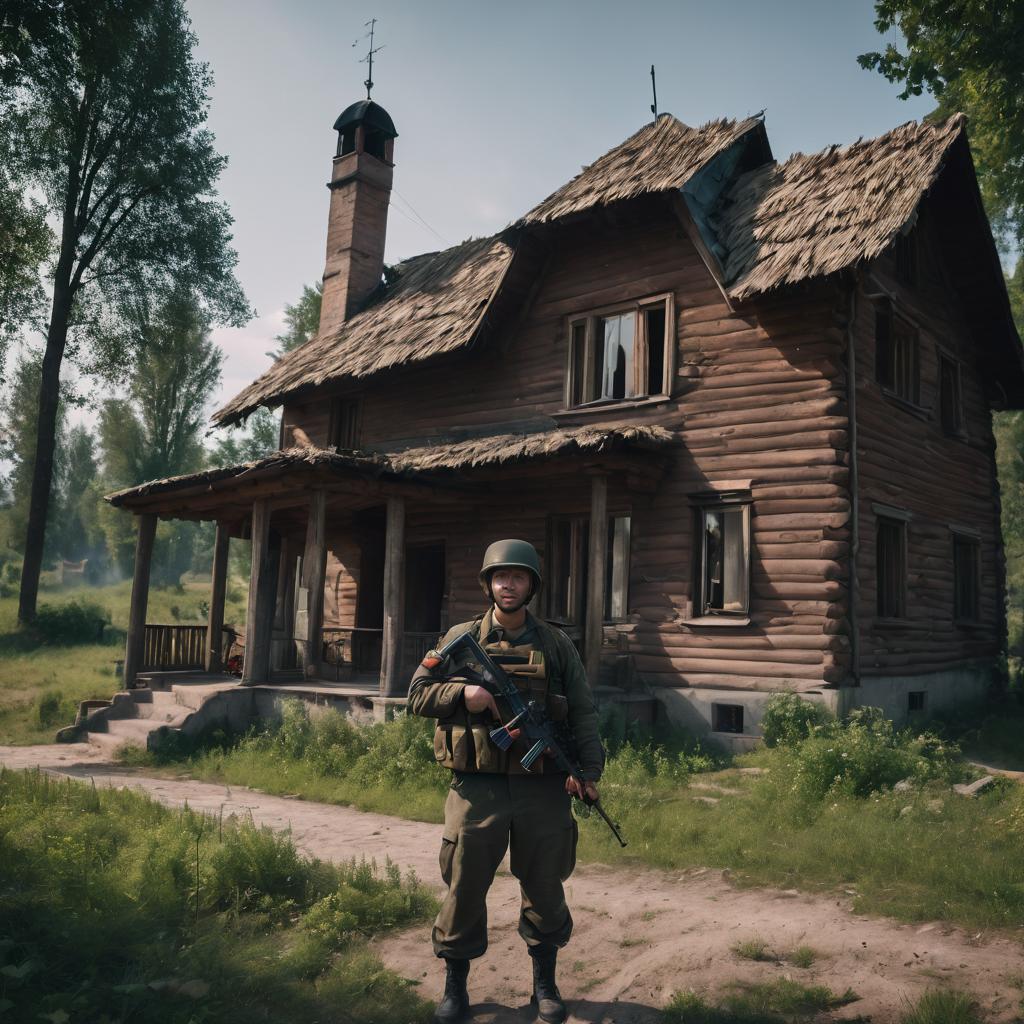BTC
$0.00
0.00%

The town greeted Maxim gloomily and silently. No one waited for him, hugged him, or asked how he was. The 19-year-old orphan returned from the front — wounded, with eyes forever haunted by the horrors of war. His house, once hidden in a cherry and apple orchard, was the only thing left from his parents. More precisely, it was no longer his. And it was no longer a house. Because the house was destroyed when a drone hit it.
The plot was located near an international highway and therefore always attracted the interest of businessmen who wanted to buy it and build an entertainment facility, a mini-hostel or a service station on it. And while he was fighting, the town mayor and a ‘black’ notary pulled off a deal: they sold the house, or rather what was left of it and half a hectare of land under it, to a wealthy friend of the police chief of the neighbouring district. The payment was in cryptocurrency. No traces, no papers, no conscience, no compassion. The new owner had already begun construction of a large service station.
The town went about its business. People here had long since learned to keep quiet. They feared the authorities and had grown accustomed to the schemes, to the idea that ‘those in power can do anything.’ In the local shop-café, they discussed the new service station and praised the fact that there would be work. Not a word was said about the boy. His story was uncomfortable for everyone, like the scar on his face that everyone looked away from. Those who remembered his parents, who had been killed under the wheels of a drunk deputy, remained silent — because the mayor could ‘put them in their place’ using his connections in the authorities.
The young man stood in front of the fence where his mother's marigolds once grew, and now there was a huge pit. And he understood that no one was interested in his story. He was just another veteran who had sacrificed his health for his country, another number on the list.
He sat down on the kerb by the gate. His wounds had not completely healed and reminded him of themselves from time to time. A grey veil hung before his eyes. He remembered the trenches, his friends and comrades who had not returned. He remembered how he believed he was fighting for something greater. And now there was only emptiness in his soul. He went to his neighbour's to spend the night. But he couldn't sleep because his dreams brought explosions, screams, and his mother's voice calling him home. But there was no home anymore.
The neighbours were silent. Some were afraid, some didn't want to get involved. And some said, ‘What did you expect? That's how things work here.’ And indeed, it works. A system where connections are more important than the law, where an orphan is not a person but an obstacle to business, where cryptocurrency is the new currency of impunity.
Who will be punished? It is unknown. Because in a small town, as in a country, the truth is whatever suits the powerful. And the boy? He is silent again. Because he learned to endure on the front lines. In the morning, in the same shop-café, when he sat down at a table and ordered a pie and sea buckthorn tea, a woman approached him — his former teacher. She remembered his parents, knew the truth, and was not afraid to speak. She brought documents that could change everything. And perhaps this is where the struggle will begin.
Maksym turned to journalists and wrote to human rights activists, hoping that someone would listen. But what next? Take revenge? Or go through legal channels, knowing that it could be too long and slippery?